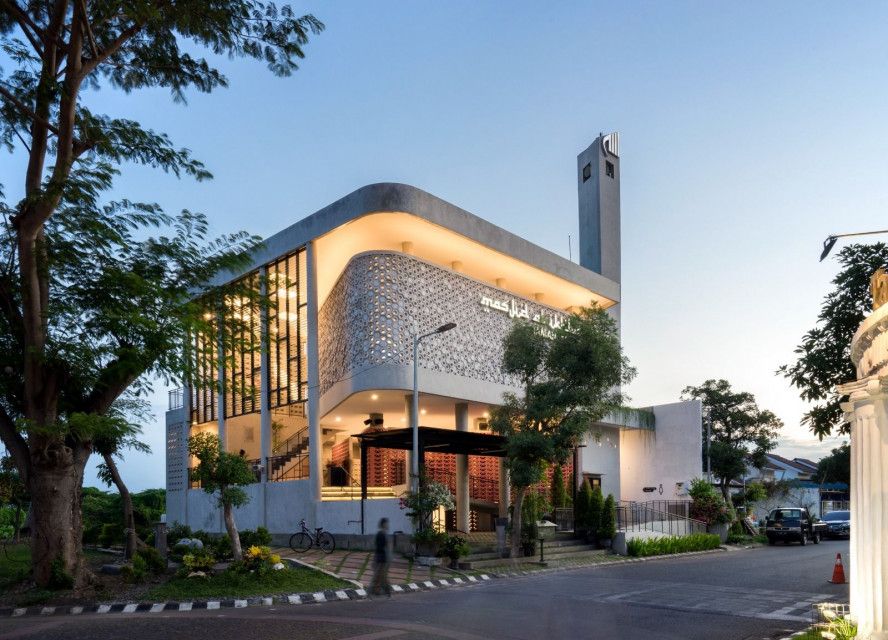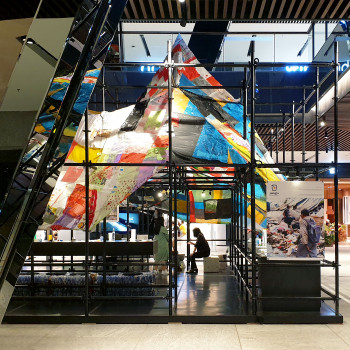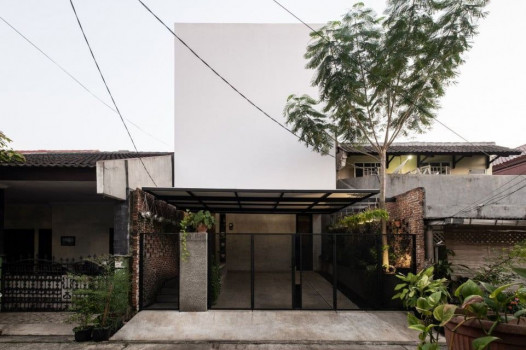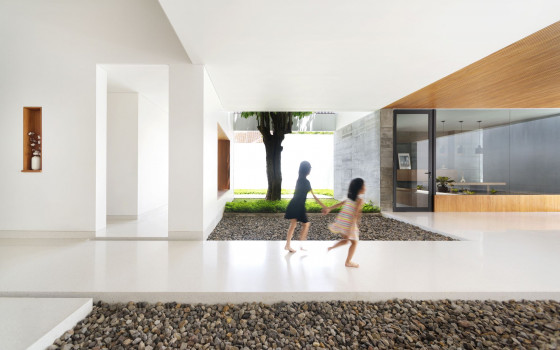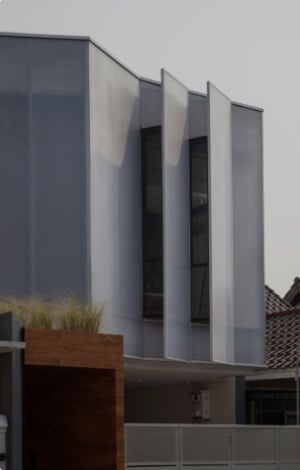Honeycomb Mosque Takes Inspiration from Bees Philosophically and Physically



Located in the Puri Surya Jaya housing complex, Honeycomb Mosque has the official name of Al-Ikhlas Mosque. However, the mosque is well-known in the community as Sarang Lebah (Honeycomb) or An-Nahl Mosque because honeycombs inspire most of the architectural elements used in the building.
The mosque takes the basis of the Qur'an's 16th letter, the 68th verse of An-Nahl which reads, "And your Lord revealed to the bees." Bees are creatures that give a lot of parables, favors, and benefits to humankind. Hence, honeycomb is used as the main idea of the mosque. The mosque aims to be the "honey" to the environment, not only physically sweet, but also gives sweetness in a broader context to the world.
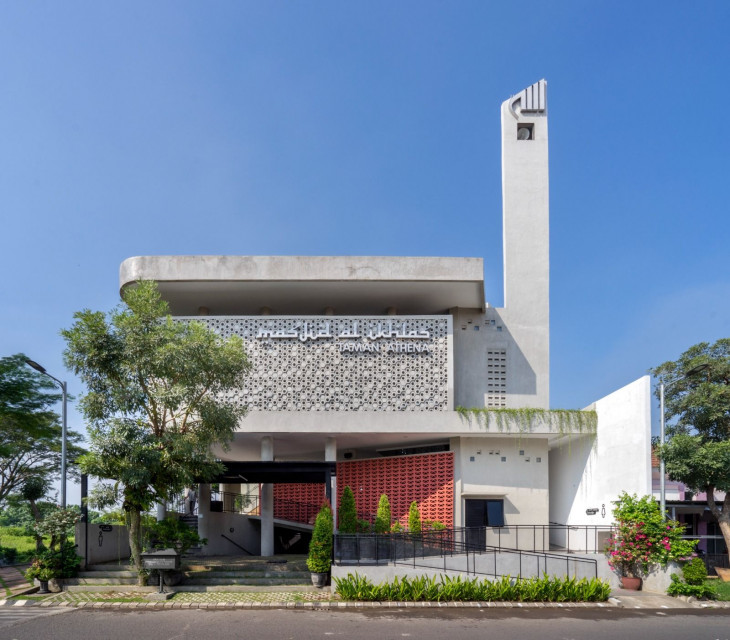
The mosque is also based on Nusantara intelligence of passive design by making holes in the wall to enable airflow from inside-out, making the mosque cooler inside. The hollowed walls are made from vent blocks which dominate the overall appearance of the mosque. By applying these Nusantara-style walls, the Honeycomb Mosque can still be comfortable for pilgrims inside while avoiding the use of air conditioners.
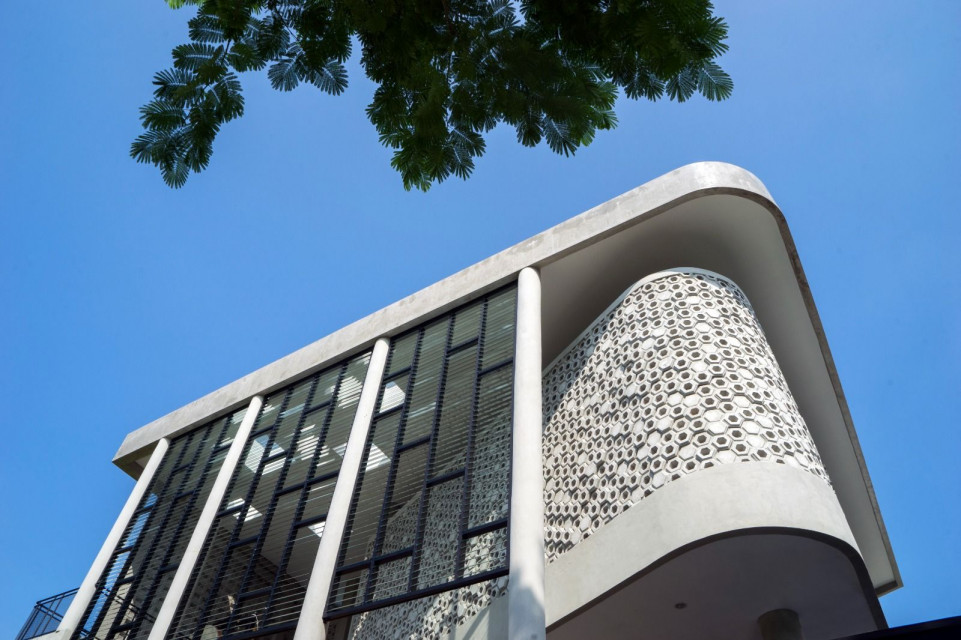
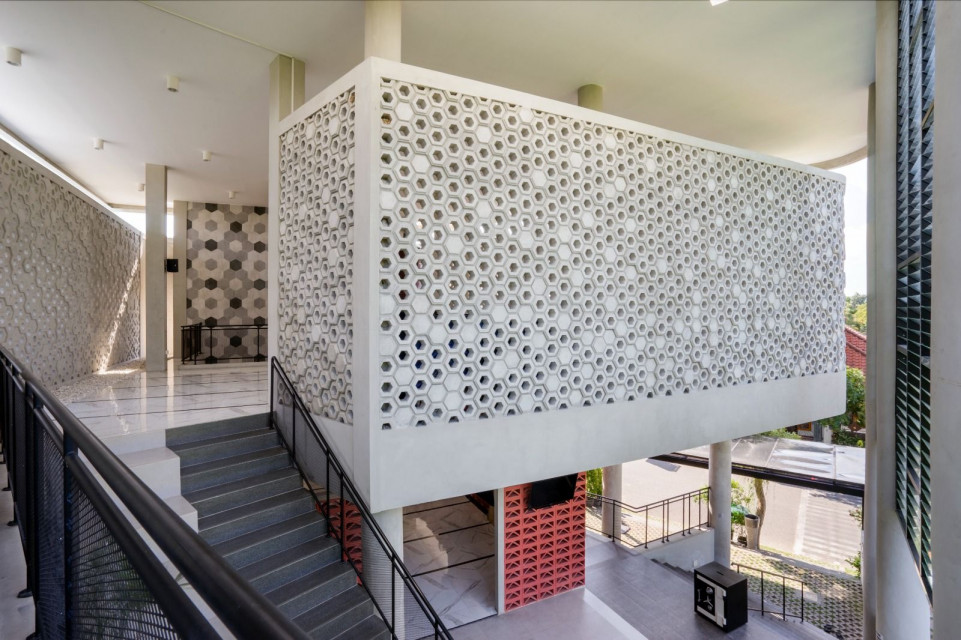
The most dominant look of the mosque falls in the hollowed wall with the form of hexagon-shaped vent blocks, similar to those of honeycombs. The mosque gains its popularity from this form. This honeycomb shape is also repeated in several parts of the mosque such as in the main wall of the pilgrims' worship orientation, further strengthening the honeycomb image.
Terracotta and honeycomb or hexagon are the two kinds of vent block used in the mosque. They are custom-made by local craftsmen in Buduran, Sidoarjo. This is a form of support for local artisans so they can survive and compete in the current global era.
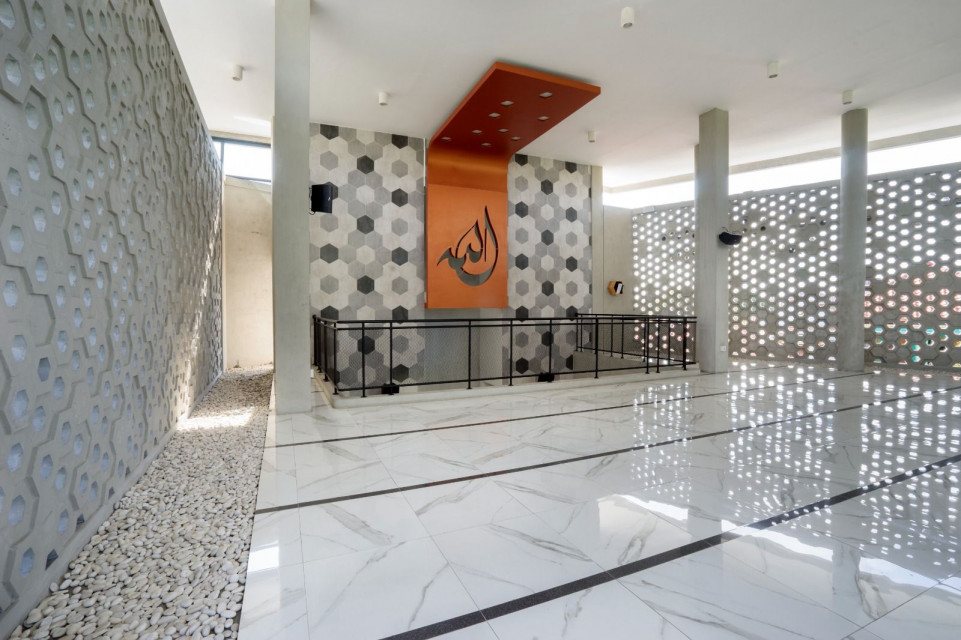
The stilt building and umbrella concept are both adapted from Nusantara passive design style. The stilt building concept is done by pulling the ground level wall backward, giving the second floor the stilt effect with standout columns in front. Strengthening the impression, the vent block wall is made in contrast: the lower part is terracotta, while the upper part is cement-coloured.
The umbrella concept is created by making a continuous pillar upwards, supporting the roof in the form of a large umbrella that shades the existence of the mosque.
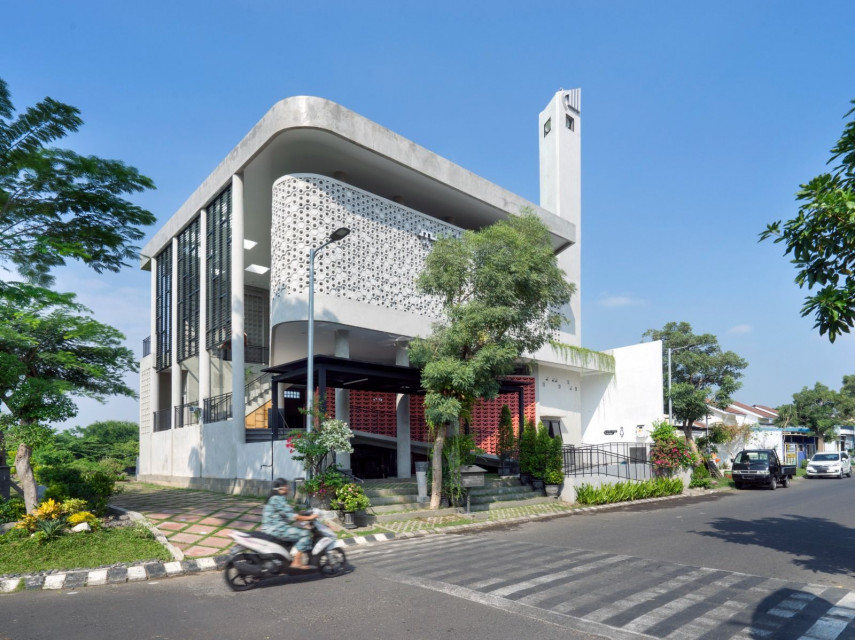
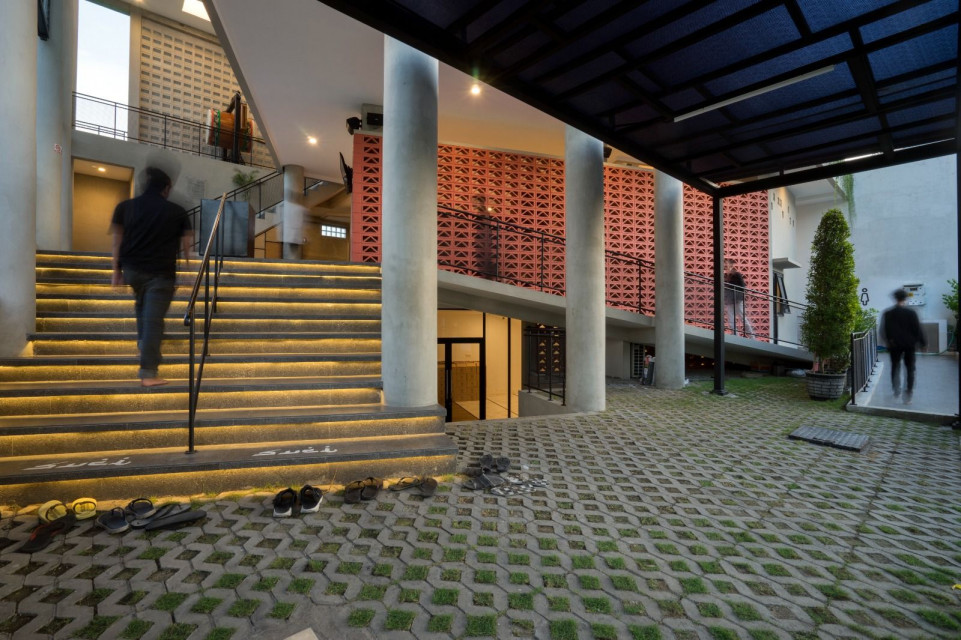
The mosque consistently promotes the pilgrims' essential concept that sees the world as a public and social entity, just like the bees. Being social creatures and hard workers, no bees live alone. Hence, the mosque aims to build a broader empathy for fellow human beings and stay focused on religious activities.
As the mosque must face the Qibla, the square-like layout is positioned slightly tilted from the site, precisely extends West-East. The compromise formed as well as the composition between parallel lines with the Qibla and site result in a more dynamic plan and spatial planning.
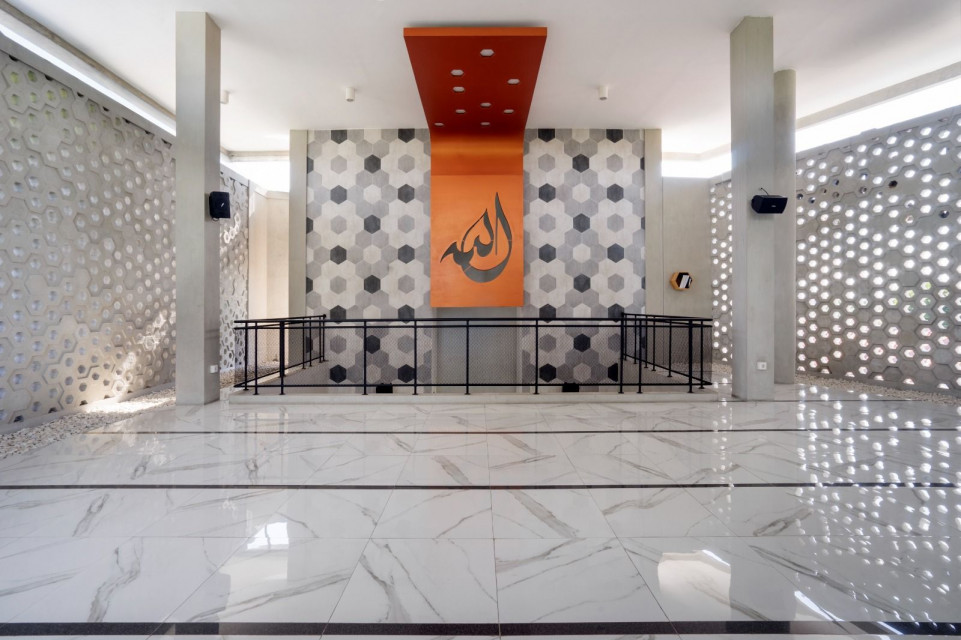
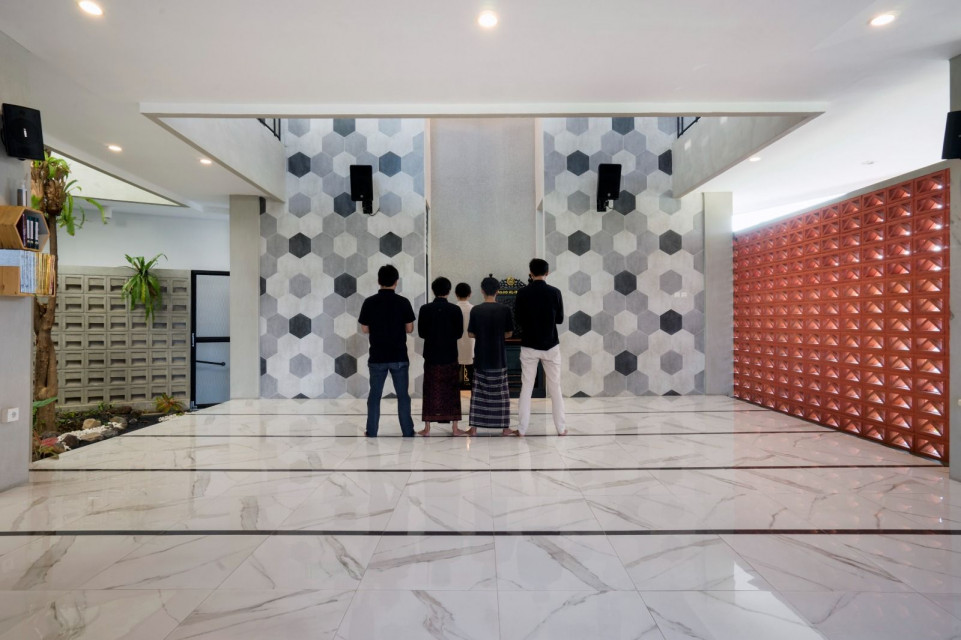
The mosque is presented with a disabled-friendly design as an empathy for people with disabilities. A ramp and accessible toilet is provided so they can access the mosque and its facilities.
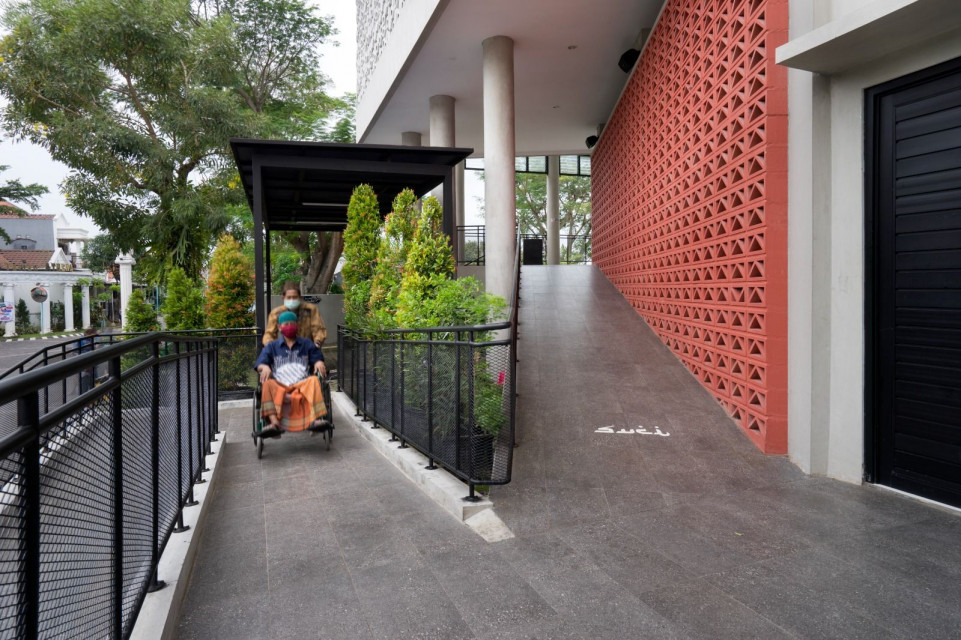
When the COVID-19 pandemic occurred the first time in 2020, the mosque caretakers took action by making the mosque a food bank to help the lower classes affected by the economic impact of the pandemic. The mosque also provided basic food packages, masks, and hand sanitizers to be given to the surrounding villages community. This act is taking example from the bees which are always social-minded and helping others in need indiscriminately.




 Australia
Australia
 New Zealand
New Zealand
 Philippines
Philippines
 Hongkong
Hongkong
 Singapore
Singapore
 Malaysia
Malaysia


